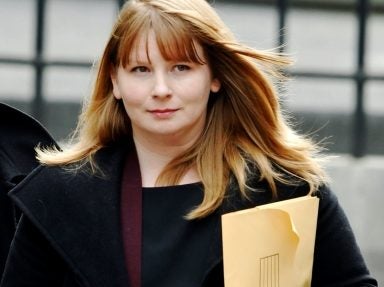
The NUJ has set itself at odds with national and regional press publishers after its general secretary Michelle Stanistreet reiterated her support for statutory press regulation.
Just days after the launch of the Free Speech Network – a coalition of publishers opposed to any form of statutory involvement in press regulation – Stanistreet once again voiced her support for the model being pushed by reform group Hacked Off.
She said: “We believe that if we are to achieve independent, accountable regulation it needs to be underpinned by statute enabling a framework for a new body to be established with clear terms of reference, and a structure that involves journalists and civil society as key stakeholders.
“This is absolutely not the same as state regulation, far from it. Our model is based on the system in Ireland, where a Press Council was established together with a Press Ombudsman.
“It is significant that in Ireland, employers work sensibly and positively with the NUJ as a key stakeholder in a structure that journalists are actively represented within.”
Stanistreet made the comments in a statement ahead of a debate being held by Bristol NUJ called Where Now for the Press after Leveson?
It is being held on 27 November at Watershed, Bristol, and also features Mick Hume arguing against statutory involvement in press regulation.
Although last month’s NUJ Delegate Meeting did not explicitly back statutory underpinning, it did pass a motion supporting “robust regulation of the press by an independent, accountable body”.
Most journalism academics appear to favour statutory underpinning of a new independent press regulator. There has been widespread speculation this is what Lord Justice Leveson will recommend when he issues his report, which is now expected at the end of November.
Those opposing the statutory route include Index on Censorship. A spokesperson told Press Gazette: "We are for strengthened self-regulation and against an independent regulator underpinned by statute."
"Index’s position is that regulation, no matter how light would have a chilling effect on the freedom of the press in this country, based on our insight into how media regulation works in other European democracies. We also believe that Leveson needs to promise journalists access to a stronger and clearer public interest defence in order to protect investigative journalism that at times might require dubious ethical practices."
Email pged@pressgazette.co.uk to point out mistakes, provide story tips or send in a letter for publication on our "Letters Page" blog
